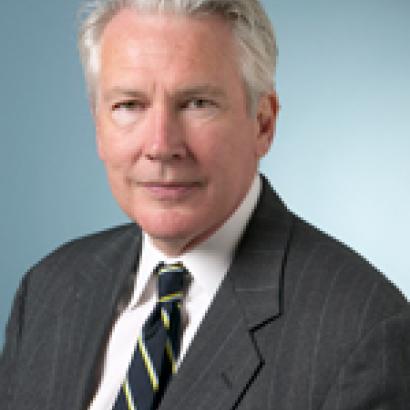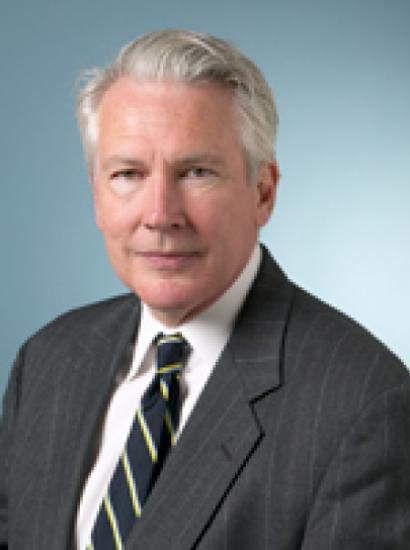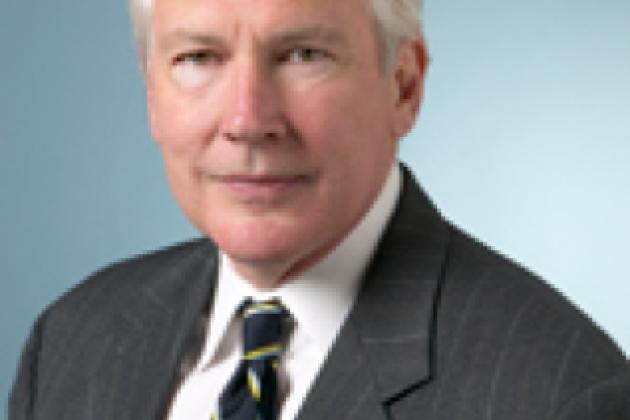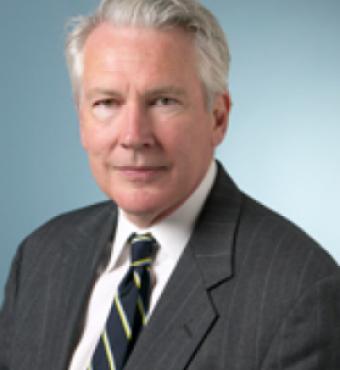- International Affairs
- US Foreign Policy
- Security & Defense
- Terrorism
- US Defense
- Law & Policy
- Congress
- Politics, Institutions, and Public Opinion
Morano: What are you, Friend?
Polly: A young Fellow, who hath been robb’d by the World; and I came on purpose to join you, to rob the World by way of Retaliation. An open War with the whole World is brave and honorable. I hate the clandestine pilfering War that is practis’d among Friends and Neighbors in civil Societies.
—John Gay, The Beggar’s Opera, 2.5.21–221
Warfare and the constitutional order exist in a mutually affecting relationship. Fundamental innovations in war bring about fundamental transformations in the constitutional order of states; transformations in the constitutional order bring about fundamental changes in the conduct and aims of war. Terrorism has been, by contrast, merely a symptom, not a driver of this phenomenon. As we shall see, this accounts for the odd fact that terrorism surges after the end of the epochal wars by which the constitutional order is changed, after the peace congresses have convened to ratify that change. The difference in the current era is that now terrorists are about to acquire the weapons and strategies previously reserved to states at war, and they thus will acquire also the potential to affect the basic constitutional order.
It is a popular European retort to American policy since September 11, 2001, to say that the only thing new about the attacks on that day is that U.S. citizens were the victims. Societies that have endured assaults by the Irish Republican Army (IRA), the Basque separatist group ETA, the Palestine Liberation Organization, and the FLN of Algeria are skeptical about American perceptions of terrorism. It is natural, it is said, that the Americans, being unused to such incidents, should exaggerate their importance and their novelty. Older, wiser societies know how to handle such matters—and it is not with their defense departments. Panic and overreaction are characteristic of a failure to put events in perspective.
In pondering these sometimes phlegmatic, sometimes shrill rebukes, one should bear in mind that approximately one-third of all the international terrorist attacks between 1968 and September 10, 2001, involved American targets. American diplomats, military personnel, and businessmen were murdered on several continents. In this period more American officials died from terrorist attacks than British officials during the same period of IRA depredations. One should also note that the onslaughts on New York and Washington on September 11, 2001, killed more persons than all terrorist attacks on British, French, and German targets since 1988 combined, and indeed casualties were greater than all deaths from transnational terrorism during this period. Finally, to miss the distinctiveness, the novelty of 9/11, as it has come to be called, is to misapprehend what has happened to terrorism—its structure, its tactics and weapons, and its targets. When one fully appreciates this point, one sees Al-Qaeda in a way that reflects its singular deadliness and that redefines terrorism itself.
“Asymmetric warfare” is the use of unconventional means to attack a superior conventional force. It has existed at least since David and Goliath. Similarly, the use of terror, associated with particular religious and ethnic groups, has a long history, and bands of holy warriors have killed civilians to achieve political objectives from ancient times. In first-century Judaea, Jewish terrorists struggled against the Roman occupation. One such group, known as the Sicarii (dagger-wielders), often attacked Jewish collaborators. Another terrorist group, the Zealots, brazenly slit the throats of Roman officials. By striking in public places, like crowded markets, in daylight, they seemed to underscore the inability of the Empire to ensure security. These groups had several advantages over their Roman occupiers, including especially initiative. They chose when to attack and then melted back into the non- Roman population that was indifferent or hostile to the occupation and terrified of retribution by terrorists against anyone found to be a Roman informant.
In seventh-century India, the Thuggee cult ritually strangled travelers as sacrifices to the Hindu deity Kali. The terrorist’s intent was to frighten his victim—an important element in the Thuggee ritual—rather than to motivate political action by third parties. The cult endured over more than six hundred years and may have killed as many as 500,000 persons.
In the eleventh century a Shia sect known as the Ismaili fedayeen attacked Christian occupiers and those Sunni officials who refused to adopt an especially ascetic version of Islam. These victims were often kidnapped and held captive and frequently killed. On occasion they might even be murdered at close quarters, surrounded by their bodyguards. These tactics revealed “a willingness to die in pursuit of their mission echoed by today’s suicide bombers. While they are particularly remembered for attacking the Crusaders, most of their targets were other Muslims.” Apologists of the ruling dynasty called these attackers “hashishashin” because, it was alleged, they would eat hashish before murdering their victims and, in this state, were promised heavenly rewards—including the abundant companionship of virgins. Our word “assassin” is derived from “hashishashin.”
These words from mankind’s past—“assassins,” “thugs,” “zealots”—have passed into modern English. It is not hard to see parallels between these historical groups and those of the present; indeed, the references to empire, religious fanaticism, the targeting of collaborators, ritual killings, suicide missions, and the rest will be familiar to anyone who has lived in the first decade of the twenty-first century. That does not mean, however, that terrorism has existed essentially unchanged.
As we shall see, terrorism exists as an epiphenomenon of the constitutional order. This was true even in the medieval period, when the constitutional order had yet to metamorphose into the first modern states. The terrorism of the Crusaders is a case in point. In his sacerdotal role, mingling military and ecclesiastical values, the Crusader was unlike earlier and subsequent terrorists owing to his having arisen in the context of a feudal constitutional order. Yet a terrorist he was, though his “chivalric theatre masked . . . many awful atrocities” including ferocious pogroms against Jews that were features of the preliminaries of many Crusades, and gross examples of ethnic cleansing in which non-Christians were driven from towns of religious or strategic significance by deliberate campaigns of terror.
The failure to understand the unique motivations of the early Crusaders has led generations of historians to make anachronistic assessments of the Crusaders’ motives. Each historian has tended to portray the Crusaders in light of his, that is, the historian’s, preoccupations— a not unusual phenomenon, but one that, ironically, is as period-bound as the Crusaders’ own preoccupations. Nineteenth-century interpreters thus described the Crusades as early examples of European economic expansion; subsequent writers characterized the Crusades as driven by imperialist motives. A French historian of this period took the conquests of the Crusaders to be “the first French empire.” Twentiethcentury Arab nationalists turned this idea around and saw the Crusades as a species of ethnic exploitation. Twentieth- century Marxists proffered the theory that rising European populations forced the landed aristocracy to take new measures to prevent the division of their estates, including primogeniture, which brought about a surplus of young males who had to be distracted by foreign adventures.
There is no evidence to support any of these claims, Jonathan Riley-Smith, professor of ecclesiastical history at Cambridge, has concluded. One should not criticize Crusaders for being what they were not. They were not imperialists of the nineteenth-century state nations or colonialists of the eighteenth-century territorial states. They were not simply after land or booty like the terrorists of the kingly states of the seventeenth century. They were pursuing an ideal that, however alien it seemed to later generations of historians, was enthusiastically supported at the time by St. Bernard of Clairvaux and St. Thomas Aquinas.
That ideal—of sacred violence sanctioned by the pope and penitential service in warfare—is a consequence of the feudal order, with its intermixture of knightly duties in war and religious obedience to the church.
Modern terrorism thus arises with the birth of the modern state because terrorism is not simply tied to the use of violence to achieve political goals—that is, strategy—but is also linked to law. It is a necessary element in terrorism that it be directed against lawful activities. Modern terrorism is a secondary effect of the state’s monopoly on legitimate violence, a monopoly ratified in law.
In each era, terrorism derives its ideology in reaction to the raison d’être of the dominant constitutional order, at the same time negating and rejecting that form’s unique ideology but mimicking the form’s structural characteristics. For example, if the state exists to forge the identity of the nation, its terrorists will deny all nationality and justify their works as necessary to forge an international identity, but they will be careful to adopt the meritocratic promotions and self-sacrificing ethos of the imperial state nation they attack. If the state exists to aggrandize the wealth of its territorial aristocracy, its terrorists will reject territorial definitions of citizenship and live in foreign climes while copying the state’s mercantile methods and massacring natives with the professionalized forces that replaced mercenaries and were a watermark of territorial states. A state devoted to enhancing the sectarian perquisites of one particular prince will find it has evoked a permanent terrorist mercenary force—available to anyone—but one that, like this sort of state, reflects the most severe sectarian prejudices. A state whose constitutional order validates its actions by measuring them against the ruthless aggrandizement of dynastic glory by war will spawn a terrorism that is egalitarian but equally prone to aggrandizement by means of warfare based on claims of absolute sovereignty.
















